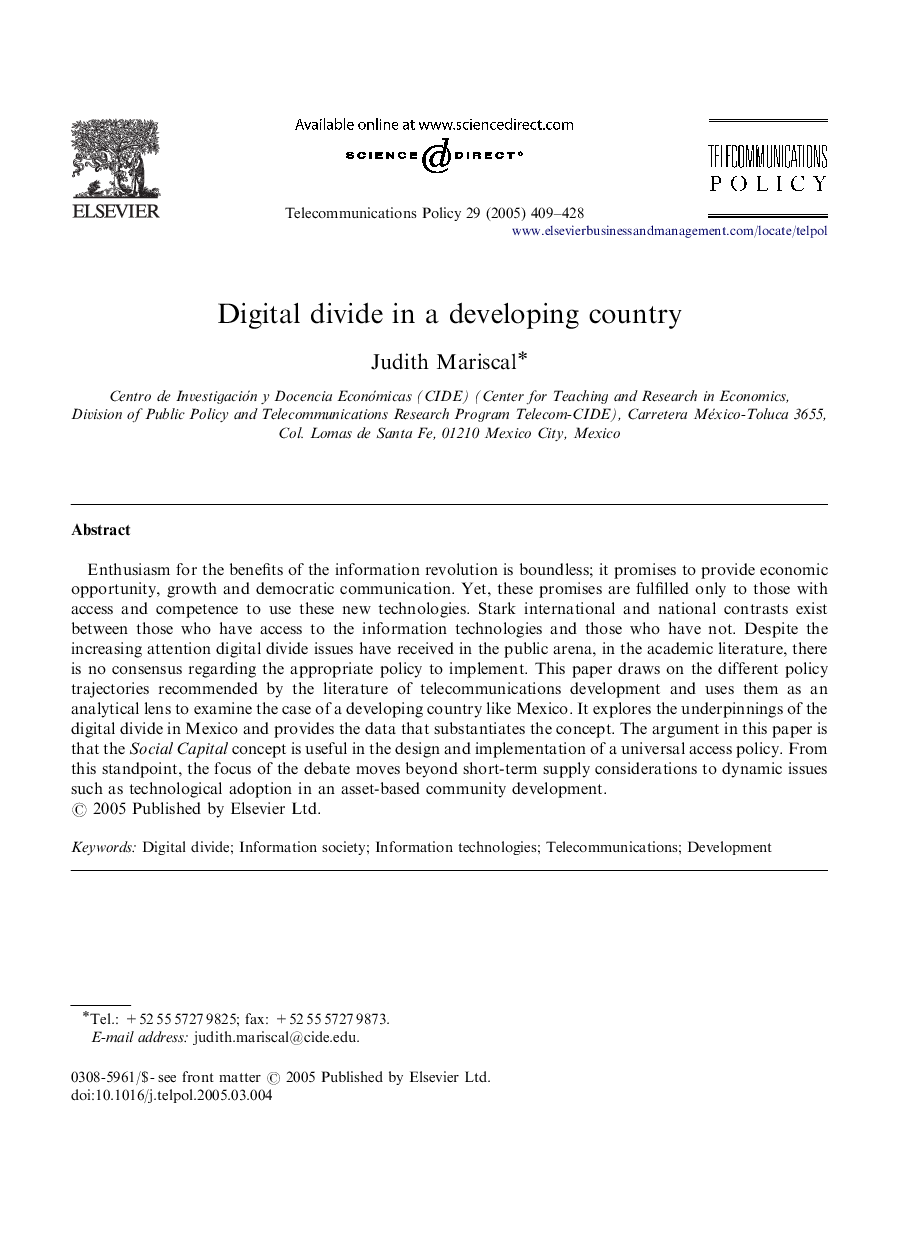| Article ID | Journal | Published Year | Pages | File Type |
|---|---|---|---|---|
| 9673212 | Telecommunications Policy | 2005 | 20 Pages |
Abstract
Enthusiasm for the benefits of the information revolution is boundless; it promises to provide economic opportunity, growth and democratic communication. Yet, these promises are fulfilled only to those with access and competence to use these new technologies. Stark international and national contrasts exist between those who have access to the information technologies and those who have not. Despite the increasing attention digital divide issues have received in the public arena, in the academic literature, there is no consensus regarding the appropriate policy to implement. This paper draws on the different policy trajectories recommended by the literature of telecommunications development and uses them as an analytical lens to examine the case of a developing country like Mexico. It explores the underpinnings of the digital divide in Mexico and provides the data that substantiates the concept. The argument in this paper is that the Social Capital concept is useful in the design and implementation of a universal access policy. From this standpoint, the focus of the debate moves beyond short-term supply considerations to dynamic issues such as technological adoption in an asset-based community development.
Related Topics
Physical Sciences and Engineering
Computer Science
Information Systems
Authors
Judith Mariscal,
